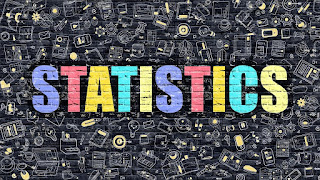Nutritional Policy
NUTRITIONAL POLICY
Description also available in video
format (attached below), for better experience use your desktop
Introduction
·
A National Nutritional Policy is a comprehensive framework developed by
a government to address the nutritional needs and challenges of its population.
·
National Nutritional Policy is essential for promoting the
·
Health and well-being of a population
·
Reducing the burden of malnutrition-related diseases
·
Supporting sustainable development goals related to food security,
health, and equity.
·
It sets out objectives, strategies, and guidelines to promote optimal
nutrition and combat malnutrition in all its forms, including
o Undernutrition
o Overnutrition (such
as obesity and diet-related diseases)
o Micro-nutrient
deficiencies.
1. Objectives
·
The policy outlines specific goals related to improving nutrition
outcomes.
·
These objectives often include
o Reducing the
prevalence of undernutrition
o Addressing the rise
of diet-related diseases like obesity and diabetes
o Promoting healthy
eating habits
o Ensuring access to
safe and nutritious food for all segments of the population.
2. Nutritional
Guidelines
·
The policy provides evidence-based recommendations on dietary intake,
food consumption patterns, and healthy eating habits.
·
These guidelines are typically developed by experts in nutrition and
health and are intended to inform individuals, families, healthcare providers,
educators, and food producers about the components of a balanced diet.
3. Education and
Awareness
·
A crucial aspect of any National Nutritional Policy is educating the
public about the importance of nutrition and healthy lifestyle choices.
·
This may involve nutrition education programs in schools, community
outreach initiatives, public awareness campaigns through various media
channels, and partnerships with healthcare professionals to promote nutrition
counseling.
4. Food Security and
Access
·
Ensuring access to safe, affordable, and nutritious food for all
citizens is a fundamental component of a National Nutritional Policy.
·
This may involve strategies to improve agricultural productivity,
strengthen food distribution systems, support local food production, and
implement social safety nets to alleviate food insecurity among vulnerable
populations.
5. Regulatory Measures
·
Governments may implement regulations and policies to support healthier
food environments.
·
This can include measures such as food labeling requirements,
restrictions on advertising unhealthy foods to children, taxation or subsidies
to promote healthier food choices, and regulations to improve the nutritional
quality of school meals and food served in public institutions.
6. Monitoring and
Evaluation
·
A National Nutritional Policy typically includes mechanisms for
monitoring progress towards its objectives and evaluating the effectiveness of
implemented interventions.
·
This involves collecting data on key nutrition indicators, conducting
periodic surveys to assess dietary habits and nutritional status, and using
this information to adjust policies and programs as needed.
7. Multisectoral
Approach
·
Addressing nutrition challenges requires collaboration across multiple
sectors including health, agriculture, education, social welfare, and commerce.
·
A successful National Nutritional Policy involves coordination and
partnership among government agencies, civil society organizations, the private
sector, and international stakeholders to leverage resources, expertise, and
knowledge to improve nutrition outcomes.
Video Description
· Don’t forget to do these things if
you get benefitted from this article
o Visit our Let’s
contribute page https://keedainformation.blogspot.com/p/lets-contribute.html
o Follow our page
o Like & comment on our post
·




Comments